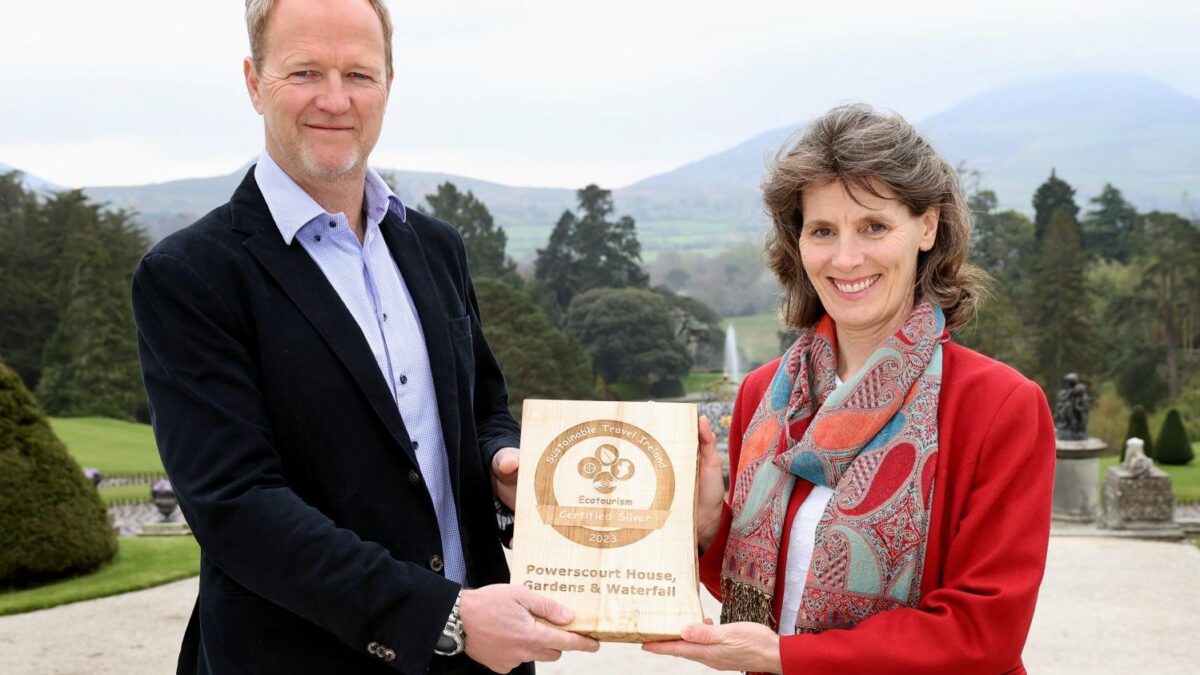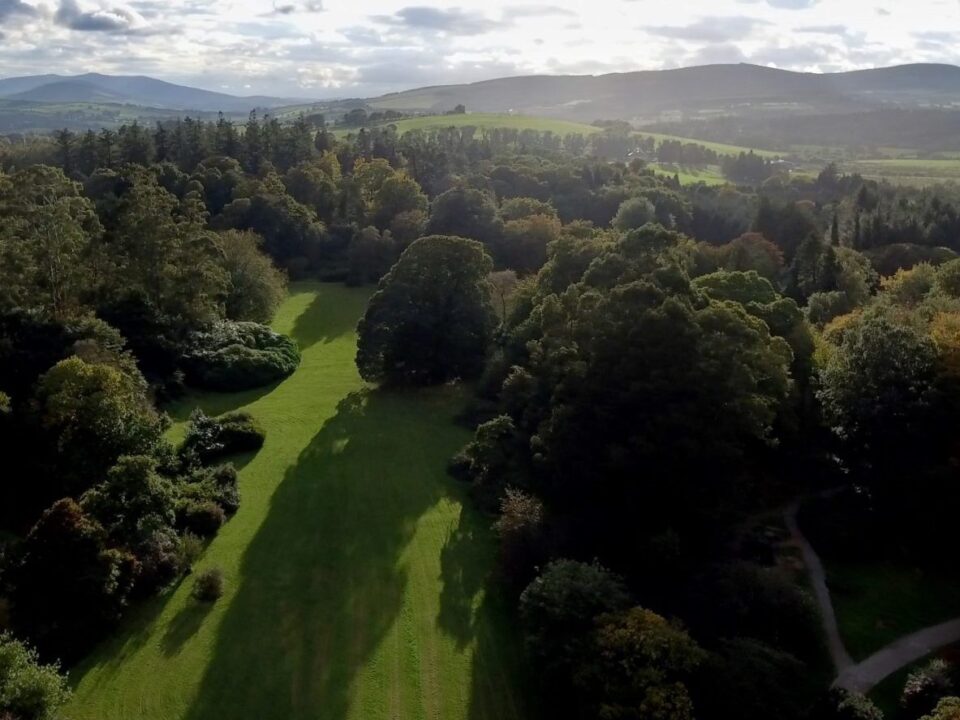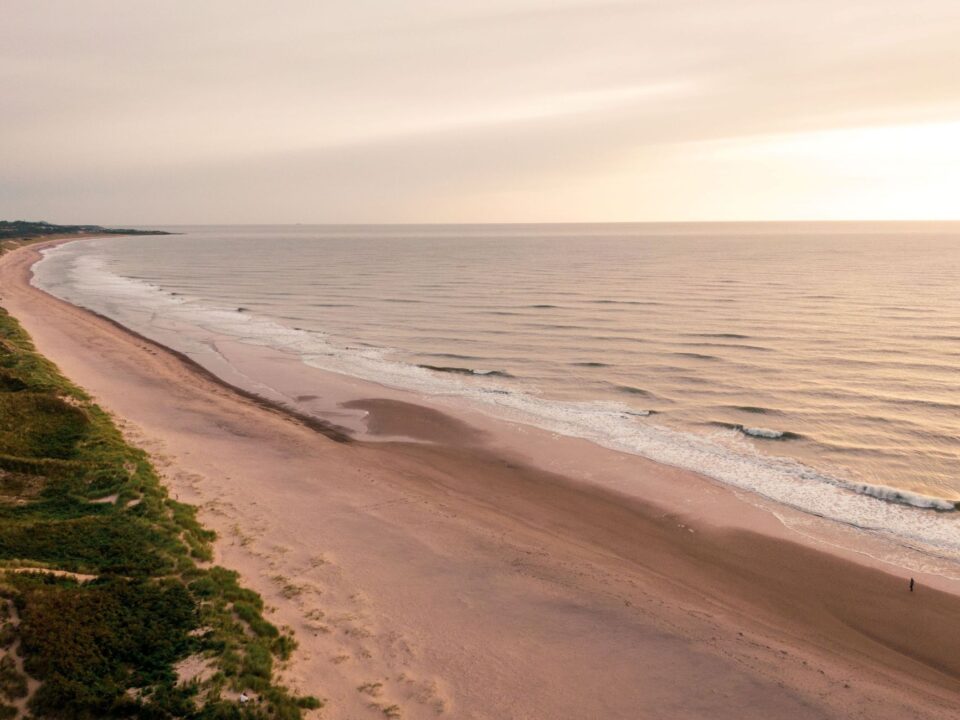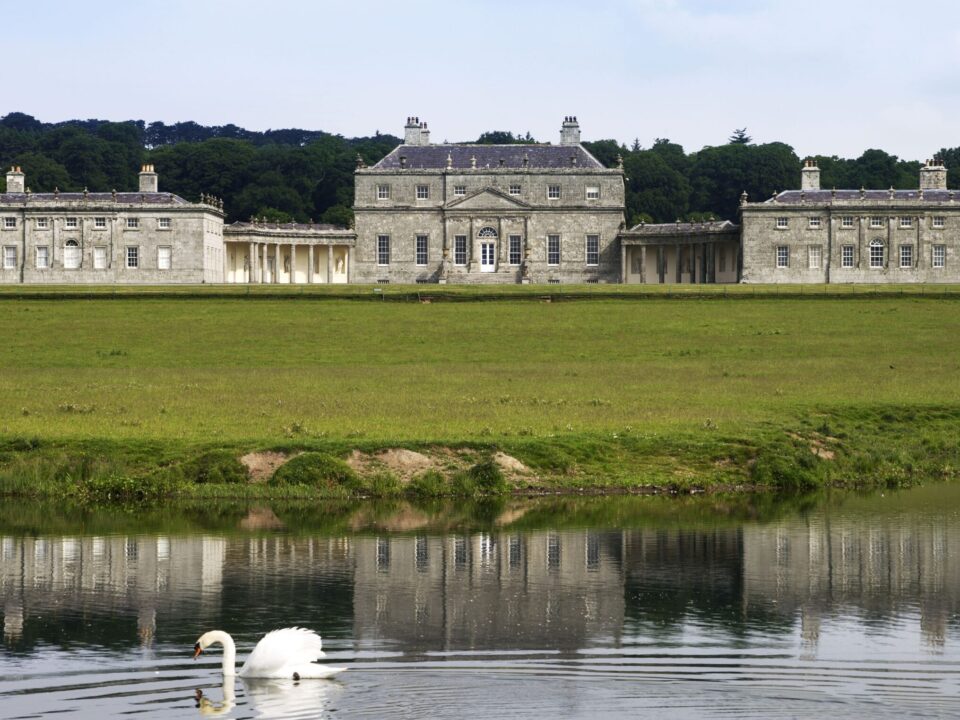Powerscourt House, Garden & Waterfall is the first major visitor attraction to achieve certification with Sustainable Travel Ireland.
Over the past couple of years, Powerscourt has been extremely busy in implementing initiatives to help reduce their carbon footprint and increase its sustainability.
The various initiatives as set against critirea that are recognised by the UN-mandated Global Sustainable Tourism Council (GSTC).
Powerscourt’s sustainability initiatives include:
- Reducing water consumption by 23% since 2019.
- Planting a mini native Irish forest on the estate comprising 1,600 native trees.
- Installing EV charging stations in the public car park and solar PV near the car park.
- Installing an integrated energy management system to measure and manage energy use.
- Introducing compost and segregated bin stations throughout the gardens.
- Rewilding areas of the estate, including Beech Avenue.
- Aiming to be net zero by 2025.
- Supporting and being members of the Wicklow Naturally local food network.
These actions and achievements demonstrate the true meaning of sustainable tourism, which focuses on both enhancing positive impacts while working on reducing potential negative ones when it comes to the environment, local community, local culture, and more.
“We are thrilled to see one of Ireland’s landmark visitor attractions blazing a sustainability trail and showing such great example to other Irish tourism businesses. And Powerscourt should be well rewarded for their efforts to do good,” stated Rob Rankin, Director of Sustainable Travel Ireland. “The bottom line is that pursuing true sustainability is not just beneficial to the environment and local community, it’s also great for the actual bottom line too. Amongst other benefits, research shows time and time again that customers want to spend their money with caring companies. And that those companies attract and retain better employees too. They also save lots of money by reducing their use of energy, waste and water,” he added.
Sarah Slazenger, managing director of Powerscourt Estate, commented: “In 1961 Powerscourt Estate was bought with sustainability in mind. Our grandfather, Ralph Slazenger, saw the potential for creating renewable energy from Powerscourt Waterfall, which is the highest in Ireland. He was an innovative thinker and we have carried forward his open-minded attitude in the development of the estate. The bottom line is that nature and the environment are integral to the estate and sustainability is vital for the future of Powerscourt. We see ourselves as custodians of Powerscourt for future generations and our aim is leave it in a better state for them. We see sustainability as vital for the future of Powerscourt.”



